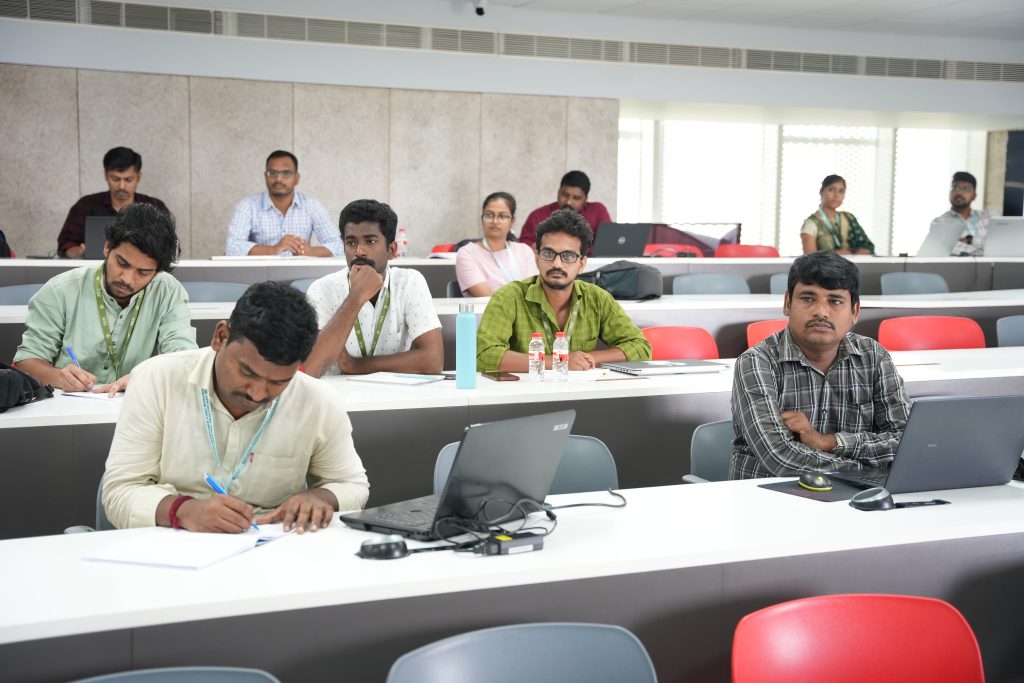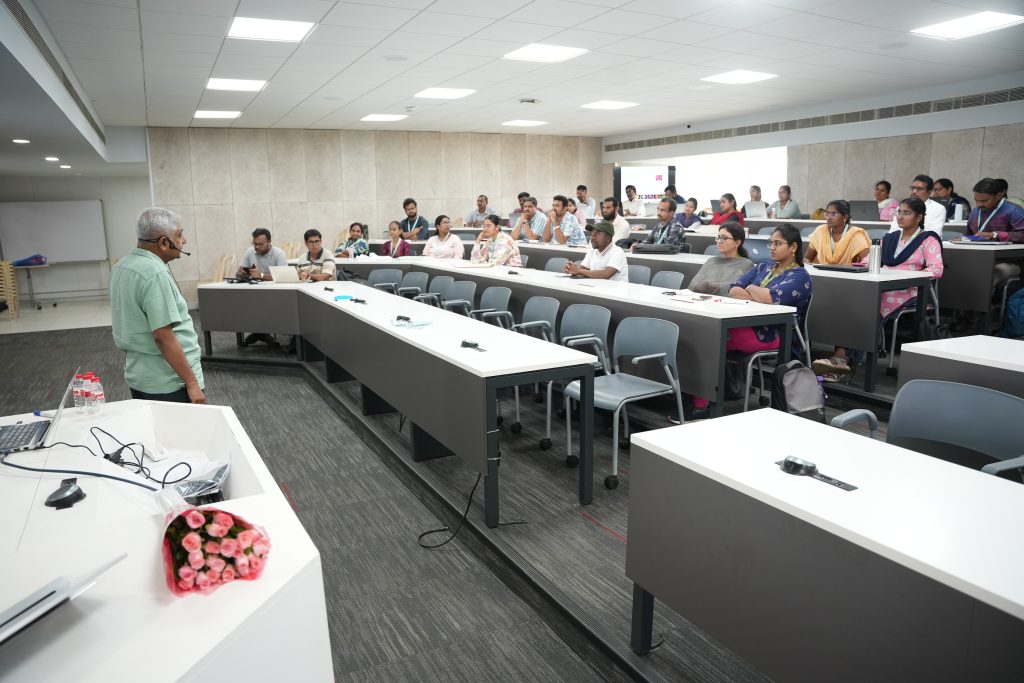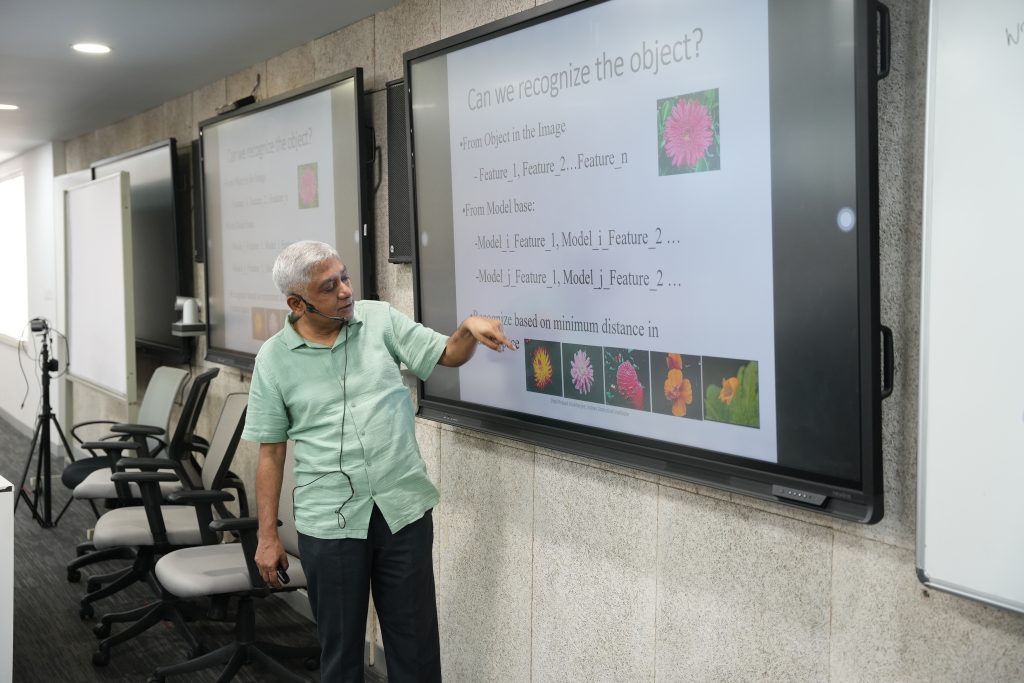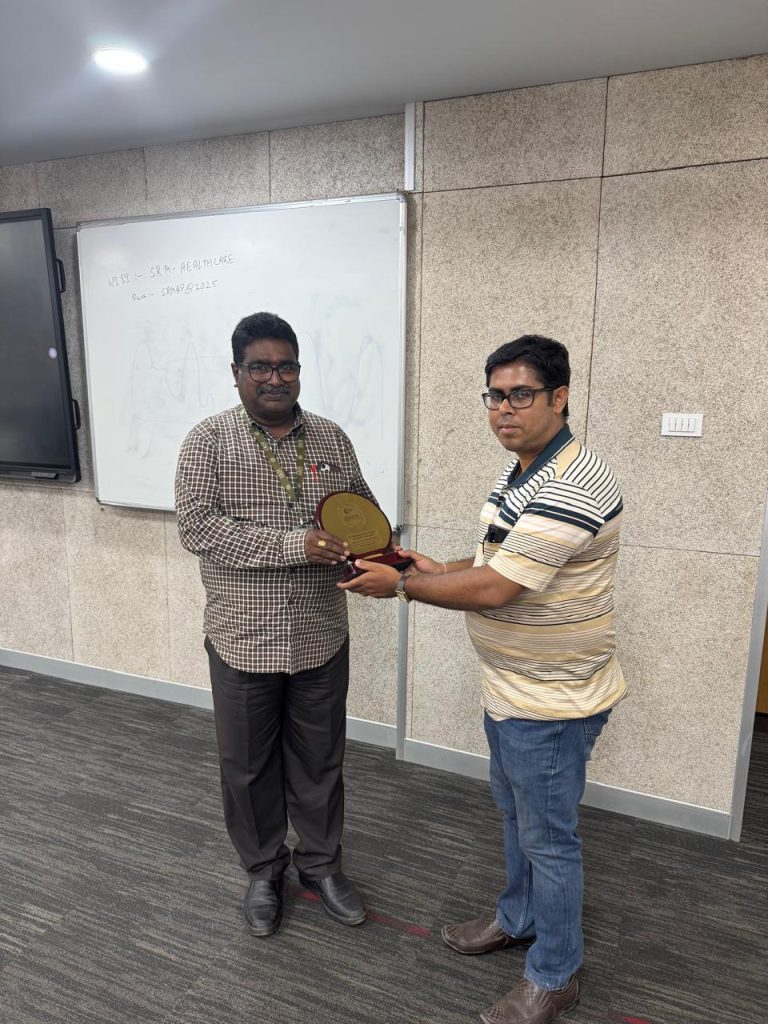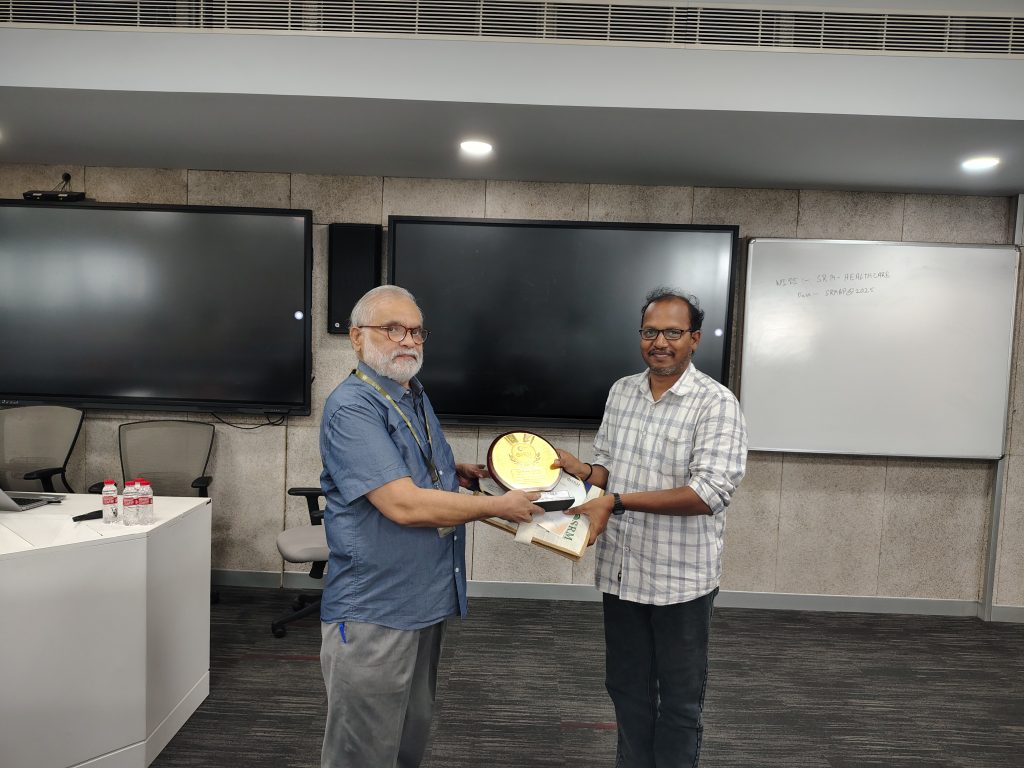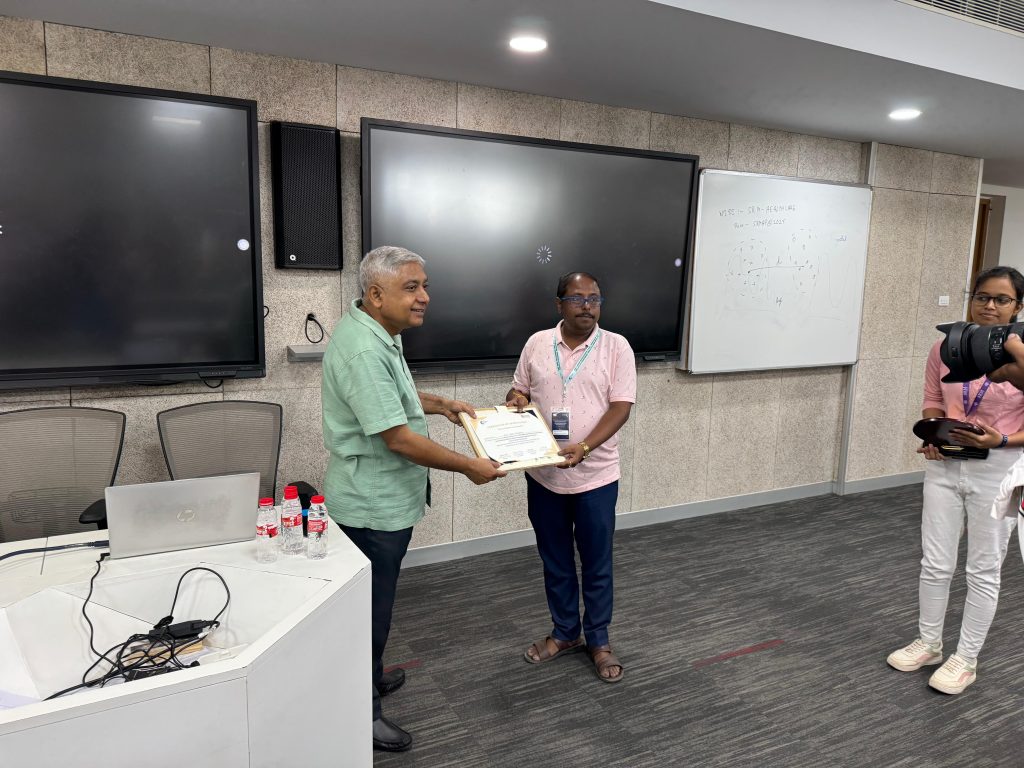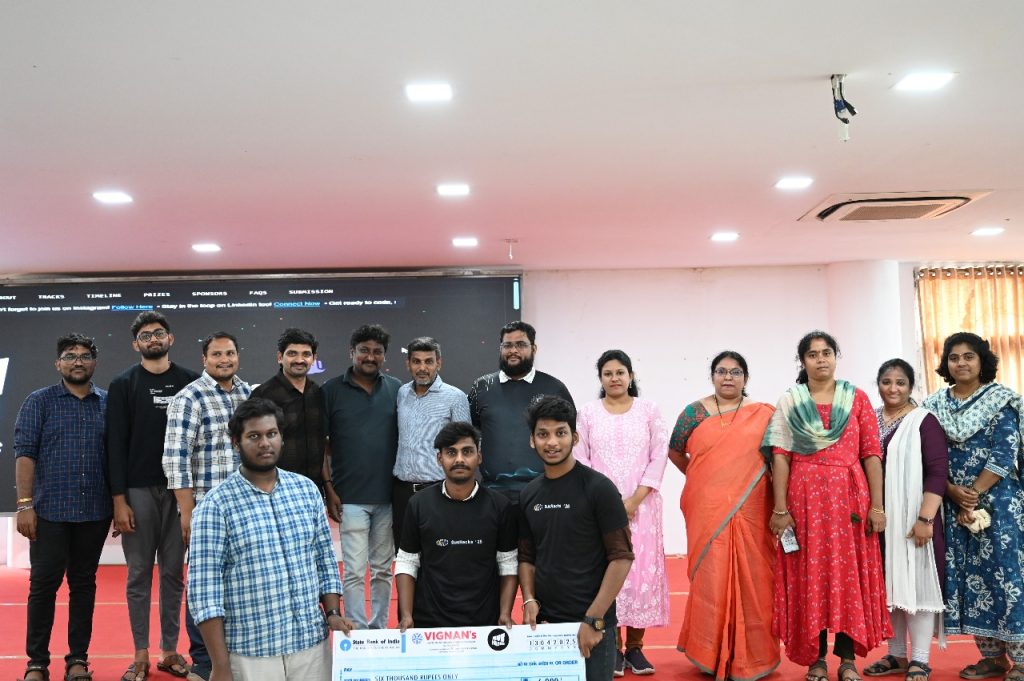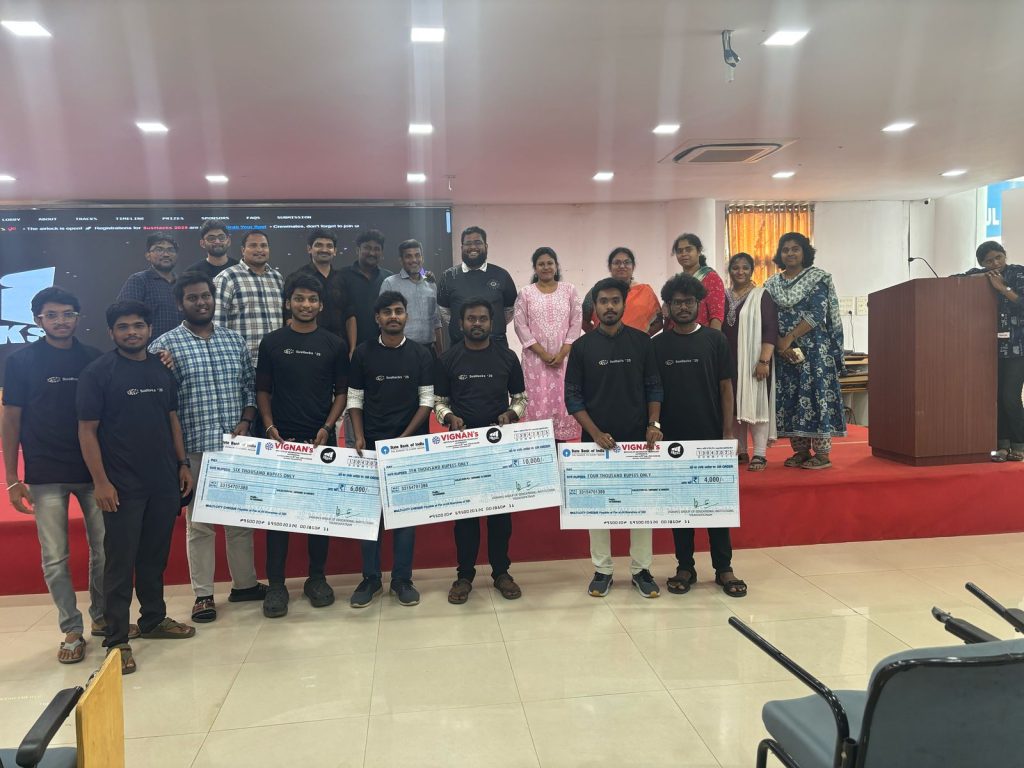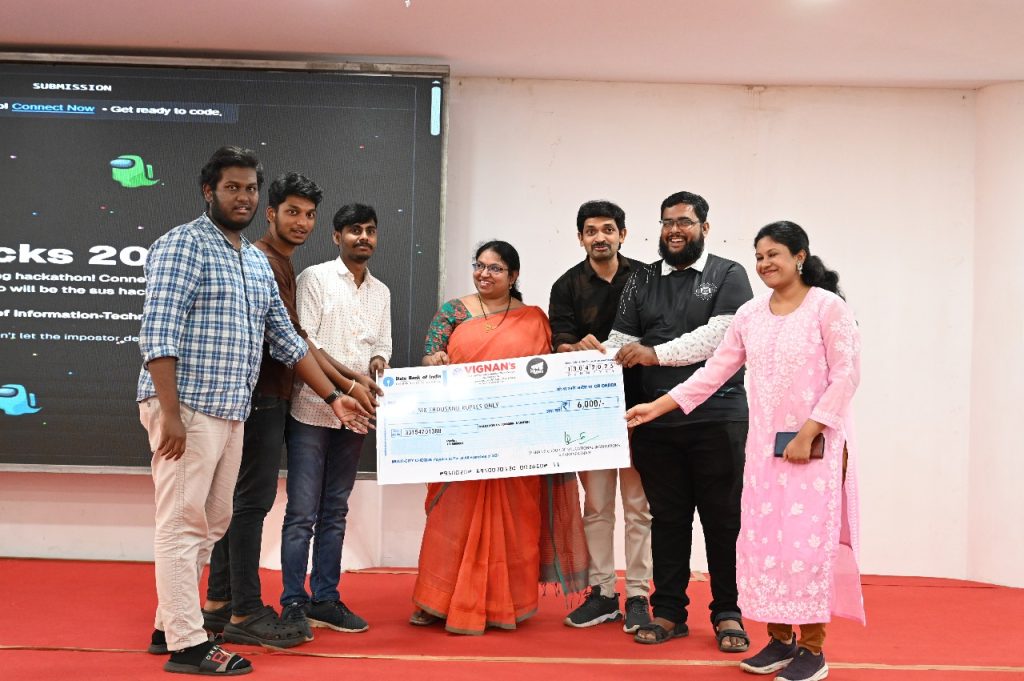Recent News
- CSE Workshop on Revolutionising Health Care with AI May 30, 2025
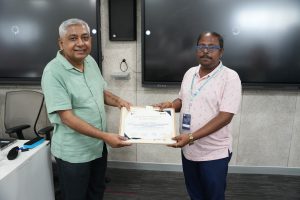 In an era when Artificial Intelligence is growing in popularity, the Department of Computer Science and Engineering decided to leverage its possibilities and expand the scope of its application across the Healthcare sector. The five-day workshop titled Revolutionising Health Care with AI: Computer Biology and Computer, sponsored by DST-ANRF, was one such event.
In an era when Artificial Intelligence is growing in popularity, the Department of Computer Science and Engineering decided to leverage its possibilities and expand the scope of its application across the Healthcare sector. The five-day workshop titled Revolutionising Health Care with AI: Computer Biology and Computer, sponsored by DST-ANRF, was one such event.The five-day workshop explored the revolutionary potential of AI Technologies in medical diagnostics with special emphasis on the areas of Computational biology. The workshop also focused on areas of Computational Biology and Computer Vision to improve healthcare by enhancing clinical decision making and enabling personalised healthcare treatments and diagnosis.
The workshop saw the participation of academicians, research scientists and industrial experts from the fields of computer sciences, biology and data science. The workshop aimed to facilitate discussions on effectively combining computational techniques with biological research.
The workshop, apart from facilitating cross-disciplinary discussion and knowledge sharing, also laid emphasis on revisiting foundational concepts nd advancements in the areas of computer vision and machine learning. They further explored the practical implications of these concepts. The workshop also offered hands-on training opportunities to give the attendees a clear understanding of the concept and delving into areas like AI and Multiomics Data.
The participants also had the opportunity to engage in brainstorming discussions, explore innovative methods that significantly contribute to healthcare improvement, and use algorithms to enable early detection of disease. Among the notable speakers who spoke at the workshop were Prof. (Dr) Lars Kaderali from the university of University of Cologne; Dr Suvendu Rup from NIT Raipur, Prof. (Dr) Amlan Chakrabarti from the A K Choudhury School of Information Technology at the University of Calcutta and an Adjunct Professor at IIIT Delhi and Prof. (Dr) Ram Bilas Pachori among others. Their insights and expertise offered participants a thought-provoking five-day workshop that would meaningfully benefit the field of Healthcare, paving the way for innovative tools and methods that will enhance patient care.
Continue reading → - SRM-ites Shine at National Hackathon and Startup Event May 1, 2025
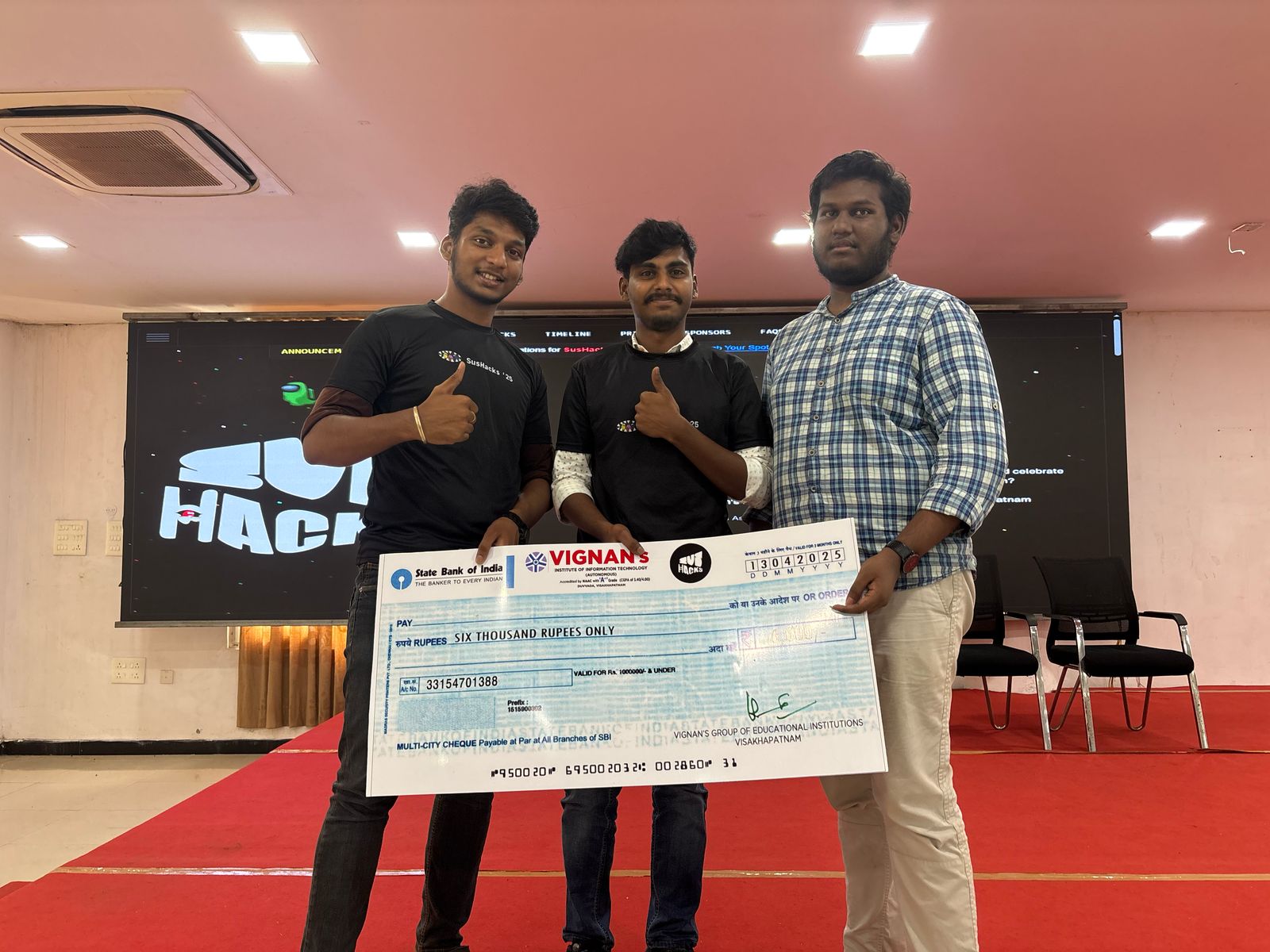 In a world where identity thefts and fraudulence cases are on the rise, our BTech- CSE students have come up with a groundbreaking idea that has not only made us all proud but has also enabled a secure platform for such transactions. Meet Pagadala Hemanth Krishna Vardhan, Uday Venkat and Pramodh Janna, SRM AP champions who have made a mark at the technical front through their innovative victory at the national-level SUS Hackathon organised by Vignan’s Institute of Information Technology, (VIIT) Visakhapatnam.
In a world where identity thefts and fraudulence cases are on the rise, our BTech- CSE students have come up with a groundbreaking idea that has not only made us all proud but has also enabled a secure platform for such transactions. Meet Pagadala Hemanth Krishna Vardhan, Uday Venkat and Pramodh Janna, SRM AP champions who have made a mark at the technical front through their innovative victory at the national-level SUS Hackathon organised by Vignan’s Institute of Information Technology, (VIIT) Visakhapatnam.The SUS Hackathon by VIIT, Vishakapatnam, featured over 700 participants and more than 250 teams from across India. SRM AP’s project on a Decentralised Identity Management (DID) system outshone the other projects for its innovative solution, which leverages blockchain technology to grant users full control over their digital identities.
The DID system allows individuals to securely manage and share their credentials without the need for centralised authorities. This approach prioritises privacy, security, and trust—elements that are especially critical in today’s digital-first world. Speaking of their project the students stated,” We were motivated by the increasing need for secure and user-controlled digital identity systems. Our goal was to create a platform that puts identity back into the hands of individuals, reducing the risk of identity theft, surveillance, and data breaches. This drove us to innovate and push beyond conventional solutions.”
The event also offered a platform for the students to showcase their startup ideas, wherein Pagadala Hemanth Krishna Vardhan presented his idea on Virtual Hyper Accuracy of Social Services and received wide attention from mentors and jury members. This start-up idea focuses on real-time women’s safety using voice commands, live tracking, saviour networks, and automated alert systems. The model was recognised for its practical impact and was encouraged for further development and incubation.
Platforms such as these allow our students to showcase their technical and leadership abilities, fostering a culture of innovation, collaboration, and real-world problem-solving.
Continue reading →


